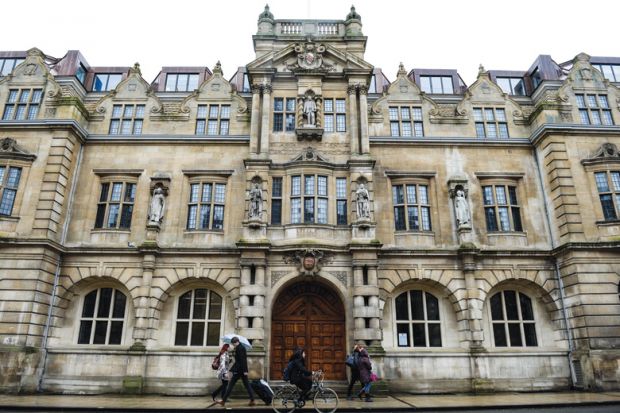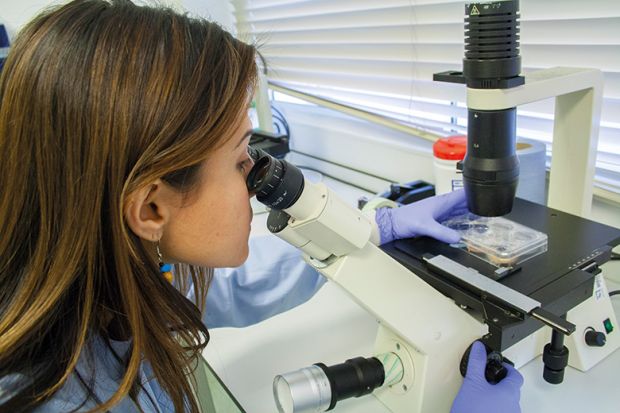Find the best universities for physics, chemistry and maths using Times Higher Education’s World University Rankings data
The study of physical science covers a number of science degrees, including mathematics, chemistry and earth science, in addition to the obvious – physics and astronomy.
The best universities for studying physics, maths, chemistry and related subjects feature in a 2018 Times Higher Education ranking of 500 universities.
American universities take 115 places in the ranking and feature predominantly in the top 10.
Only three institutions in the top 10 are not in the US: the universities of Oxford and Cambridge in the UK, and ETH Zurich – Swiss Federal Institute of Technology Zurich, in Switzerland.
Switzerland, home to the European Organisation for Nuclear Research (Cern), the largest particle physics laboratory in the world, is well represented in the ranking, with nine institutions overall. Other countries that are well represented are the UK (50 universities), Germany (37) and Australia (23).
The ranking uses the same methodology as the Times Higher Education World University Rankings 2018 but with adjusted weightings; more weight is given to citations and less to teaching and research. The full methodology can be found here.
Scroll down for a full list of degrees covered by the ranking and what you can do with them.
Top five universities for physics, chemistry and maths
1. Princeton University
The physics department at Princeton University aims to impart knowledge of the physical universe and train students how to think like a physicist – encompassing intuition, the scientific method, approximation and problem-solving skills.
Programmes on offer include engineering physics, biophysics, computational biology and other more traditional physics courses.
In the department of chemistry, undergraduates are taught in small classes and progress to an independent senior thesis project. Students receive direct attention from faculty members throughout their course.
About 1,400 undergraduates enrol in a mathematics class every year at Princeton, learning the basics of mathematical proof, calculus and number theory before progressing on to more complex subjects.
Graduate studies in mathematics focus on independent research from the beginning of the programme, unlike many other doctoral courses in America.
2. Harvard University
About 50 physics majors graduate from Harvard University every year, not counting related degrees such as chemistry and mathematics.
Undergraduates can take advantage of a flexible course structure. Compared with other science majors, the physics course has few compulsory classes. Many students therefore choose to combine a physics major with maths, astronomy, history of science or chemistry.
Even at undergraduate level, students can carry out research projects independently and work as teaching assistants in some classes.
There is an active social and support community that organises buddies for new students, recreational events and extracurricular lectures in which students have the chance to interact informally with faculty.
For graduate students, the primary areas of research at Harvard are high-energy particle physics, atomic and molecular physics, physics of solids and fluids, astrophysics, nuclear physics, statistical mechanics, quantum optics, mathematical physics, quantum field theory, string theory and relativity.
3. Stanford University
Approximately half of all undergraduates at Stanford take at least one physics course as part of their studies.
These courses serve as essential training for science and engineering majors. The department offers introductory courses aimed at non-technical majors in addition to highly specialised classes.
Studying chemistry at Stanford University is also popular, with a specific track for chemical physics for those students with a strong physics and maths background.
Students can major or minor in maths and have the opportunity to participate in an annual maths contest with cash prizes for excellent scores and for outstanding performances by women.
There are many streams for graduates studying physical sciences, from applied physics to biophysical chemistry. PhD programmes take about six years to complete.
4. Massachusetts Institute of Technology
In the past few years, MIT has produced the largest number of physics graduates of any university in the US.
The physics department is accordingly fairly large, with about 75 faculty members and almost 300 undergraduates and 300 graduate students.
Since 1998, four alumni of MIT physics programmes have won Nobel prizes for their work.
Freshman physics courses are taught using an educational initiative known as “technology enabled active learning”.
All undergraduates take maths classes as part of their degree and many choose to major or minor in the subject.
Doctoral studies at MIT lead to a doctor of philosophy or doctor of science degree, although these are equivalent in terms of degree status.
Mathematics graduate students are admitted to applied or pure maths degrees, and applied maths students are encouraged to take classes in other departments, such as engineering.
5. University of Cambridge
The University of Cambridge has a long and distinguished history of training and research in physical sciences. Famous names including Newton, Maxwell, Rutherford and, more recently, Stephen Hawking, have all been associated with the university.
Undergraduates must apply for a specific degree course, unlike at US universities, where majors are declared after the first year of study.
The natural sciences course covers most biological and physical science subjects, allowing specialisation from the second year on in physics, chemistry, biology, earth sciences and other specific disciplines.
Maths is a separate degree course, often considered one of the most demanding programmes. Maths students are nicknamed “mathmos” and undertake the course in three parts, progressing from set theory to quantum mechanics.
For most physical sciences graduate students, the famous Cavendish Laboratory is a centre for physics research and takes in about 75 each year. Postgraduate programmes include physics doctorates and master’s degrees in scientific computing, nanoscience and computational methods.












